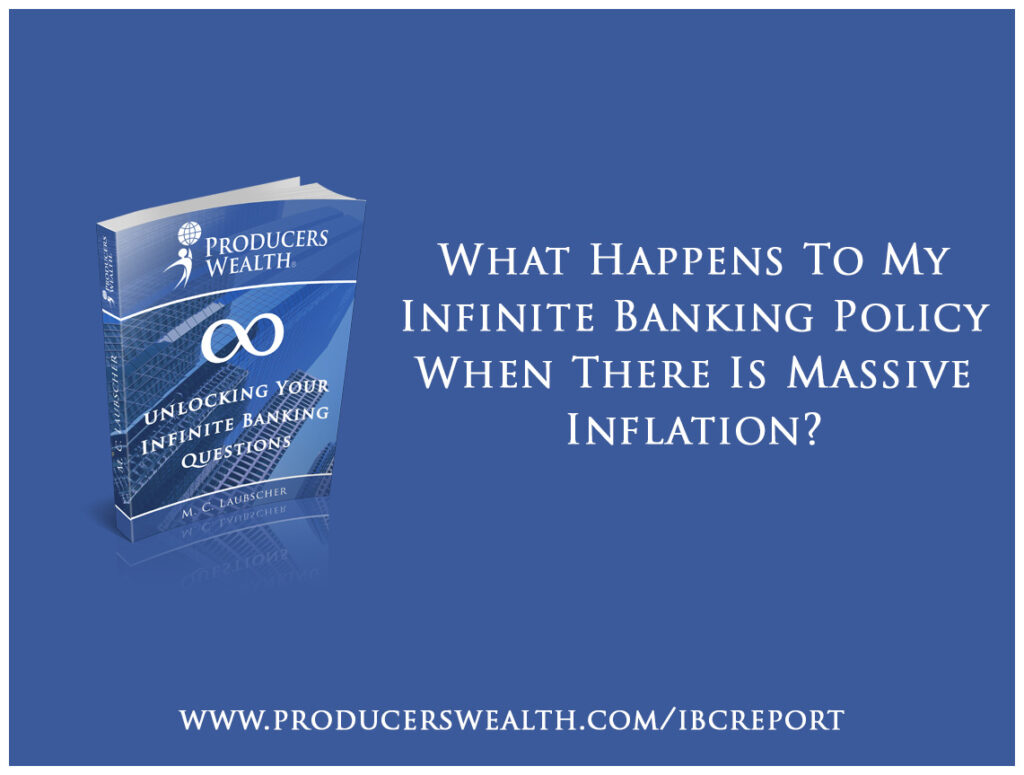
The impact of inflation on a whole life insurance policy issued by a mutual insurance company can be multifaceted.
Here’s what might happen:
Cash Value: The cash value of your whole life policy is guaranteed to grow over time, regardless of the rate of inflation. This growth is part of the policy contract. However, higher inflation could erode the purchasing power of the accumulated cash value. This means that even though the cash value is increasing, the amount of goods or services it can buy may decrease if inflation is high.
Dividends: Inflation can have an impact on the dividends paid out by a mutual insurance company on a whole life insurance policy, although the relationship is complex.
When you hold a whole life insurance policy with a mutual insurance company, you may receive dividends, which are essentially a return of a portion of the premiums you paid into the policy. These dividends are based on the company’s investment earnings, mortality rates, and operating expenses. Importantly, dividends are not guaranteed and can fluctuate from year to year.
When there is higher inflation, it typically leads to higher interest rates as a response by the central bank to control the inflation. Insurance companies, including mutual insurance companies, invest a large portion of their premiums in fixed-income securities, such as bonds. When interest rates rise, the yield on new bonds also increases, potentially leading to higher investment returns for the insurance company over the long term. This could potentially lead to higher dividends being paid out.
However, it’s also worth noting that existing bonds held by the insurance company (bought when interest rates were lower) may decrease in value when interest rates rise. This could lead to capital losses in the short term. Furthermore, higher inflation can also increase the company’s operating costs, which could impact the company’s profitability and therefore the dividends.
So, in theory, if an insurance company can successfully navigate the changing economic landscape during periods of high inflation, dividends could increase over the long term. However, the impact of inflation on dividends is not direct and depends on a multitude of factors, including how well the company manages its investments, costs, and other business operations in a high inflation environment.
Premium Payments: If your whole life policy has fixed premiums, you’ll continue to pay the same amount regardless of inflation. If your income increases with inflation, these fixed premium payments will constitute a smaller proportion of your income over time.
Death Benefit: Since Infinite Banking policies are designed to have part of the dividends buy additional life insurance death benefit to maintain the structural integrity of your whole life policy, the higher dividends with inflation will lead to more additional death benefit being purchased. Therefore your death benefit will grow at the same rate your dividends are growing due to inflation. This will increase your death benefit in proportion to the inflationary environment.
Policy Loans: If you borrow against your policy, keep in mind that higher inflation could potentially lead to higher loan interest rates, increasing the cost of policy loans.
Insurance Company’s Financial Health: High inflation can affect the broader economy and thus the financial health of the insurance company. However, insurance companies are regulated and required to maintain reserves to pay claims, which provides some level of protection for policyholders.
Watch all of our educational videos on Infinite Banking here.
Disclaimer and Waiver
Michiel Laubscher & Laubscher Wealth Management LLC is not an investment advisor and is not licensed to sell securities. None of the information provided is intended as investment, tax, accounting, or legal advice, as an offer or solicitation of an offer to buy or sell, or as an endorsement, of any company, security, fund, or other offerings. The information should not be relied upon for purposes of transacting securities or other investments. Your use of the information contained herein is at your own risk. The content is provided ‘as is’ and without warranties, either expressed or implied. Michiel Laubscher & Laubscher Wealth Management LLC does not promise or guarantee any income or specific result from using the information contained herein and is not liable for any loss or damage caused by your reliance on the information contained herein. Always seek the advice of professionals, as appropriate, regarding the evaluation of any specific information, opinion, or other content.





